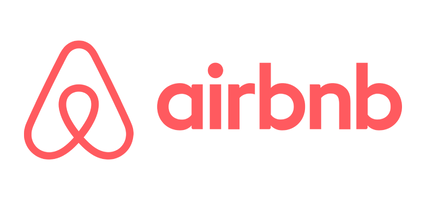The rental market has changed dramatically over the 12 years that I've been a Mortgage Broker and as ever, there are a bunch of resourceful people out there finding the best ways to provide a good home and get a good return for their property investment.
When I started out, renting weekly was the only way that you'd generally receive income from your rental property. But now we're seeing lots of changes and the main ones are people moving to Airbnb or Renting by the room to maximise their return. But there are some pitfalls of this when it comes to bank funding.
In this blog we discuss the mortgage for your Airbnb property - If you'd like to read more about "renting by the room" you can do that here.
It's not hard to see the attraction for renting a property on Airbnb rather than as a weekly rental. Sure, there is some more work and you'll need to provide furnishings etc but when the rent for one night can be nearly as much as renting the house out for a whole week then it is hard to argue with!
We've decided to rent one of our properties out on Airbnb so if you'd like to discuss some of the pros and cons first hand. I'd be happy to talk you through our experience.
For us it was a no brainer... a house very close to the centre of Cambridge. It has no garage and the third bedroom is more of a sunroom. The laundry is detached and although a reasonable sized house the kitchen is small. Lots of downsides for a long term rental but they are not at all problems when you're renting a house by the night.
So what are the pitfalls from a lending perspective?
It's hard to nail down just how much you're making in Airbnb income if you're only starting out. If you're getting $250/night that's all good and well but how many nights a year will you rent? What will your costs be?
If you've been renting on Airbnb for more than a year then the bank will happily use the income you've received via Airbnb if you can prove this via a set of financial accounts prepared by an accountant. They will take in to consideration the gross income and any expenses incurred, then use the profit toward your debt servicing requirements.So what do you do if you're starting out and can't prove income over the course of a year?
The simple option here is to get a rental appraisal on the property as if it was going to be rented weekly. Obviously this would be less than you'll earn through Airbnb but it gives the banks a "fallback position" that they can rely on should you not continue on Airbnb or it doesn't go to plan.
I have got a mortgage for one individual based on projected Airbnb income but that person had a huge amount of stats to backup their projects and the bank scaled that income to only use two thirds of what they thought they would. Still, it was enough to make it work, where the weekly rental appraisal wasn't.What if I'm renting out my holiday home on Airbnb?
What about renting out a room of my own home on Airbnb?
Once again it's a case of what you can prove. If it's a new thing then it's unlikely that a bank would consider any of that income. But if you've got 12 months worth of evidence to prove it then they will use that income.Most banks will accept a letter from a boarder or flatmate confirming the rent they'll pay so this is another way to approach getting that extra bit of income from the spare space in your home.
In summary, there are definitely opportunities to think outside the box and make a better return on your investment but you should be doing your research and discuss with us how the specific property sits with your overall plans and portfolio from a lending perspective. If we can present a good loan application and meet the bank's requirements it can be the difference between success and failure.
We'd love to hear from you if you're thinking about an investment like this. Simply contact us or email office@mymortgage.co.nz. We look forward to talking to you soon
Adam, Claire, Greg and Amber and the My Mortgage team

